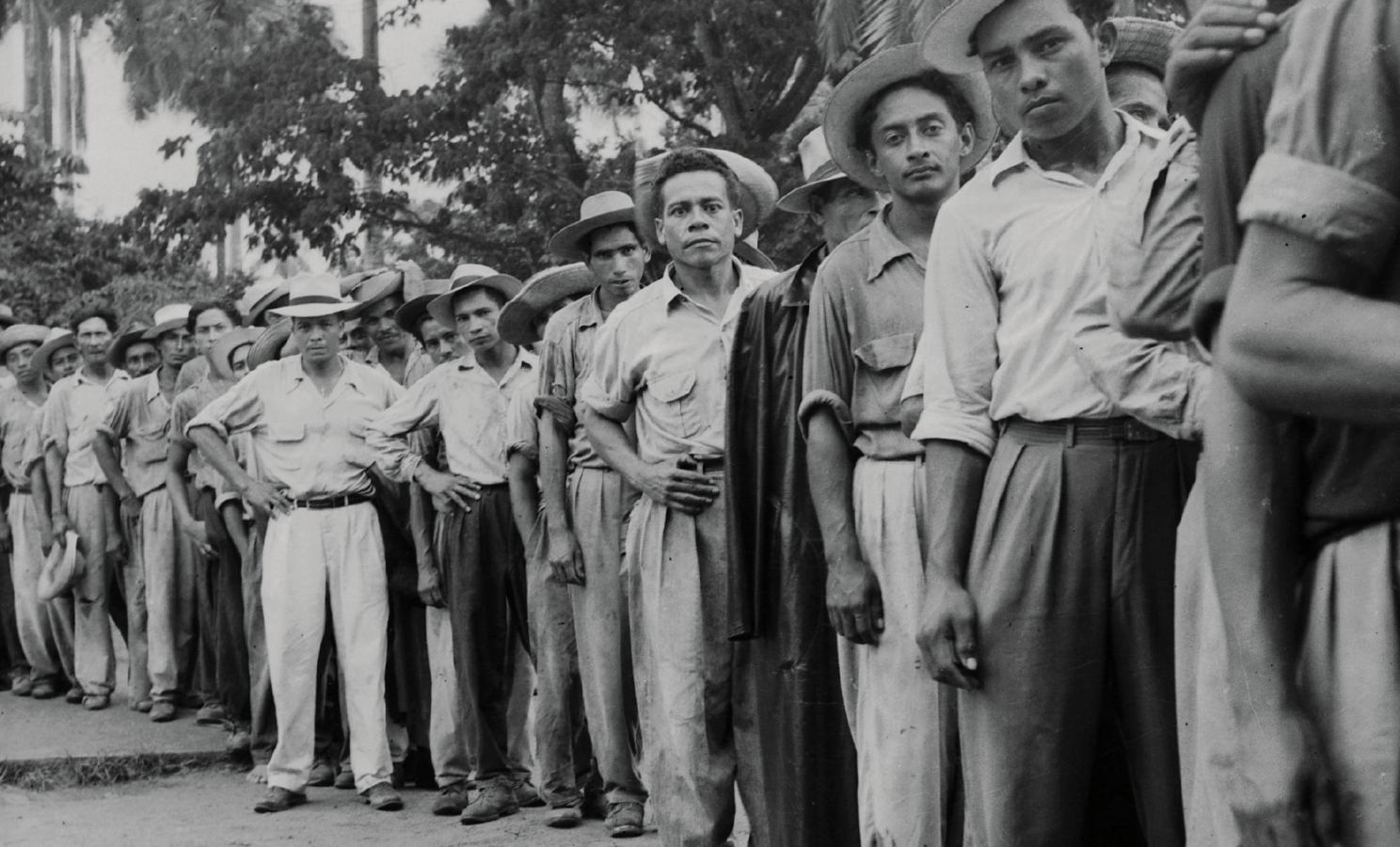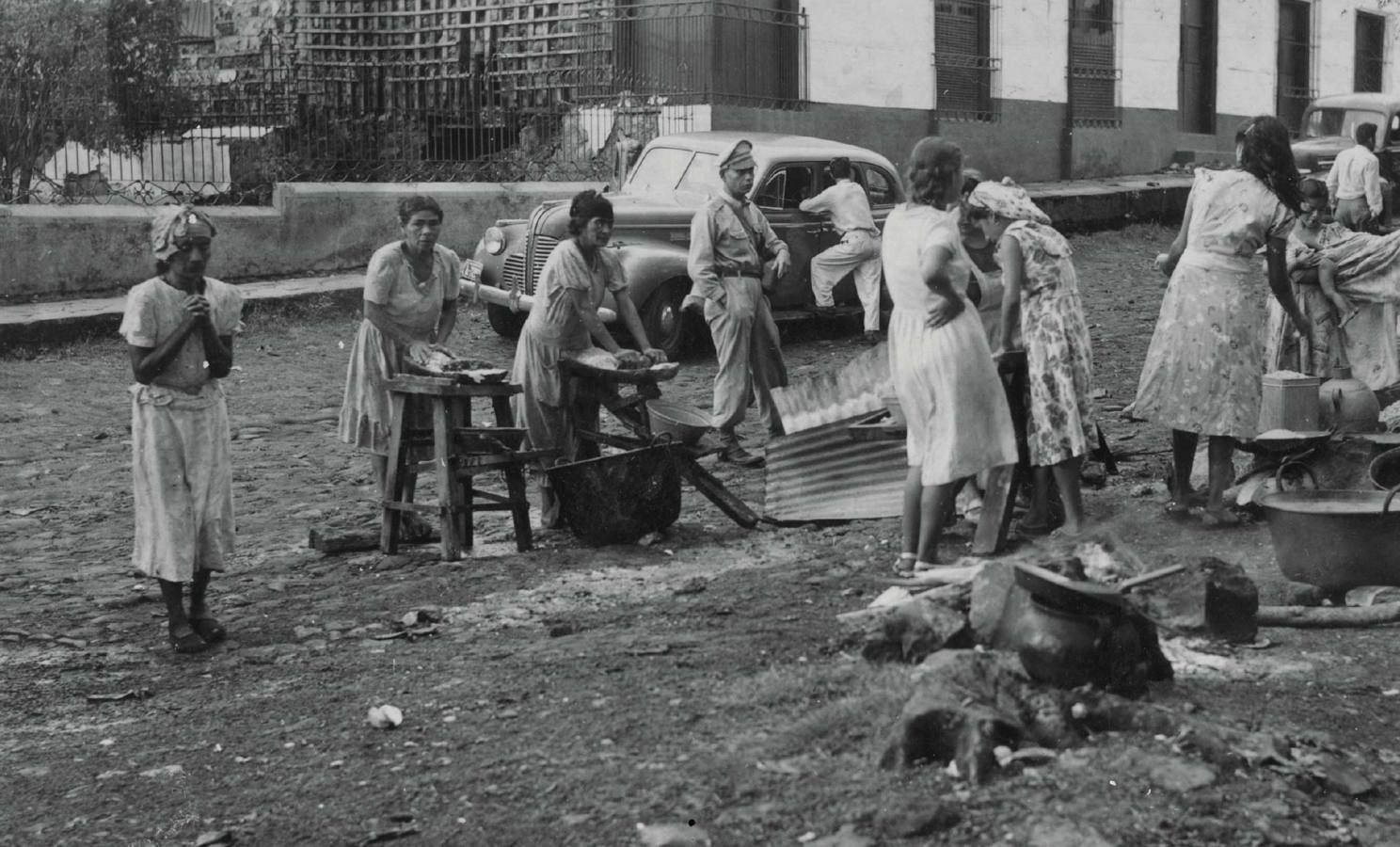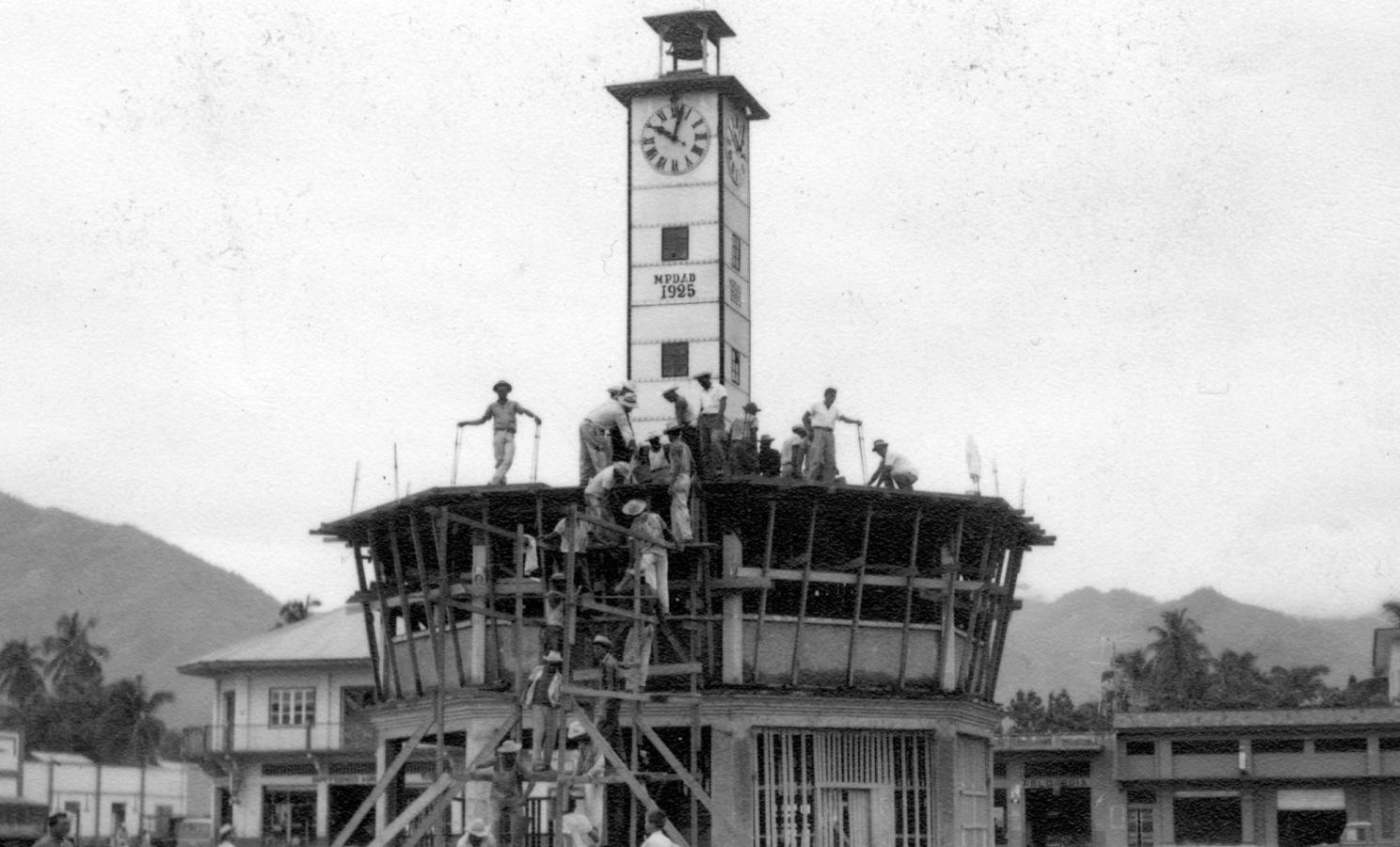

Visualizing the Americas examines the history of capitalism through the production and consumption of a single commodity, the banana. |
Visualizing the Americas examines the history of capitalism through the production and consumption of a single commodity, the banana. |



It also preserves rare, endangered records that are integral to the histories of the multinational banana companies or to the histories of the communities in which the companies operated. This project digitizes these archives and makes them freely accessible to anyone in the world. |
It also preserves rare, endangered records that are integral to the histories of the multinational banana companies or to the histories of the communities in which the companies operated. This project digitizes these archives and makes them freely accessible to anyone in the world. |



|
The United Fruit Company
With its headquarters in Boston, Massachusetts, the United Fruit Company owned vast tracts of land and employed tens of thousands of people in more than twelve countries spread from the Eastern Caribbean to Central and South America.
Capitalists, engineers, mercenaries, workers, peasants, women, small-town merchants, and politicians: these are the human subjects in this story of foreign capital toppling tropical forests and governments to plant clones of a fruit for export. Earth-cutting machines replaced biodiversity with sameness. That sameness could only be sustained with tremendous amounts of capital and the regular application of noxious chemicals. To support the production of this commodity for the global market, people also had to be kept in their place. Violence, racial hierarchies, and the curtailment of freedom were central to growing bananas on an industrial scale. Through one hundred years of the internal letters of the United Fruit Company’s managers in Bocas del Toro, Panama, we glean how this work of subjugating nature and people was done on a near daily basis. Through the collection of photographs by Rafael Platero Paz, we explore how ordinary people struggled to be recognized as rights-bearing citizens and workers, reconfiguring the “banana republics.” |
|
The United Fruit Company
With its headquarters in Boston, Massachusetts, the United Fruit Company owned vast tracts of land and employed tens of thousands of people in more than twelve countries spread from the Eastern Caribbean to Central and South America.
Capitalists, engineers, mercenaries, workers, peasants, women, small-town merchants, and politicians: these are the human subjects in this story of foreign capital toppling tropical forests and governments to plant clones of a fruit for export. Earth-cutting machines replaced biodiversity with sameness. That sameness could only be sustained with tremendous amounts of capital and the regular application of noxious chemicals. To support the production of this commodity for the global market, people also had to be kept in their place. Violence, racial hierarchies, and the curtailment of freedom were central to growing bananas on an industrial scale. Through one hundred years of the internal letters of the United Fruit Company’s managers in Bocas del Toro, Panama, we glean how this work of subjugating nature and people was done on a near daily basis. Through the collection of photographs by Rafael Platero Paz, we explore how ordinary people struggled to be recognized as rights-bearing citizens and workers, reconfiguring the “banana republics.” |

Endowed with means that had been reserved for Divine Providence in former times, they changed the pattern of the rains, accelerated the cycle of harvest and moved the river from where it had always been and put it with its white stones and ice currents on the other side of the town, behind the cemetery. ... "Look at the mess we've got ourselves into," Colonel Aureliano Buendía said at that time, "just because we invited a gringo to eat some bananas. |
— GABRIEL GARCÍA MÁRQUEZ, ONE HUNDRED YEARS OF SOLITUDE (1967)
Endowed with means that had been reserved for Divine Providence in former times, they changed the pattern of the rains, accelerated the cycle of harvest and moved the river from where it had always been and put it with its white stones and ice currents on the other side of the town, behind the cemetery. ... "Look at the mess we've got ourselves into," Colonel Aureliano Buendía said at that time, "just because we invited a gringo to eat some bananas. |
— GABRIEL GARCÍA MÁRQUEZ, ONE HUNDRED YEARS OF SOLITUDE (1967)


